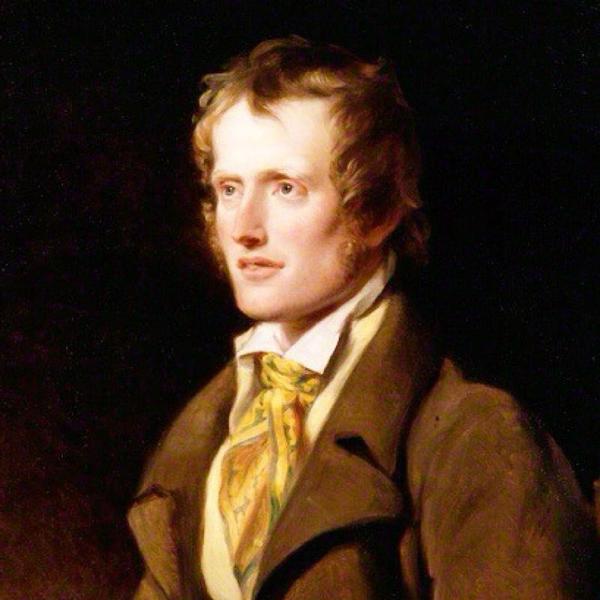- Details
- Written by: Kamran Mofid
- Hits: 4001
Harrowing picture of post-capitalist America: The 'sacrifice zones' - areas that have been offered up for exploitation in the name of profit, progress, and technological advancement
Chris Hedges and Joe Sacco: drawing America's invisible poor - audio slideshow
For his latest book, Days of Destruction, Days of Revolt, out this month in paperback, Pulitzer prize-winning author Chris Hedges collaborated with award-winning cartoonist and journalist Joe Sacco to produce a heartfelt, harrowing picture of post-capitalist America. Together they explore the country's 'sacrifice zones' - areas that have been offered up for exploitation in the name of profit, progress, and technological advancement - and show in words and images what life looks like in places where the marketplace rules without constraints.Britain engulfed in corruption: Wandering through the Wasteland, Time to Return to the Promised Land
- Details
- Written by: Kamran Mofid
- Hits: 5321
Banks, drug makers, arms dealers, politicians, the media, bonuses, amoral socio-economic behaviour, and more are frightening reminders of why we need rules, accountability, responsibility, regulation, and a strong public sector serving the greater good
Enough of Privatisation and Deregulation: Time is Now for Hope, Empathy, Compassion and the Common Good
As it has been noted, and indeed discussed and analysed extensively here within this Blog postings, in the last many years Britain’s establishment has lurched from the disaster of the Iraq war to the disgrace of parliamentary expense fiddling, media phone-hacking, corruption in banking and finance, and most recently the GlaxoSmithKline fraud and corruption case. The house of cards, built on the false ideology of neo-liberalism, and put together on shifting sands has now fallen apart, piece by piece; blown away by the forces of greed, individualism, selfishness, and consumerism.
The neo-liberal, free market-based development paradigm- some of whose staunchest adherents had gone as far as declare that “Greed is good” - has taken a battering with the continuing and deepening financial market meltdown.
However, we cannot turn this sinking ship away from the stormy waters to a calmer environment, if we do not try to discover how on earth we got to where we are today: the wasteland that has become of Britain.
- Details
- Written by: Kamran Mofid
- Hits: 6232
John Clare, the poet of the environmental crisis – 200 years ago
This great poet showed how the era of greed began with the enclosure of the land
"Inclosure came and trampled on the grave / Of labour's rights and left the poor a slave … And birds and trees and flowers without a name / All sighed when lawless law's enclosure came."

John Clare. Photo: bing.com
…Our environmental crisis could be said to have begun with the enclosures. The current era of greed, privatisation and the seizure of public assets was foreshadowed by them: they prepared the soil for these toxic crops…
"The land around Helpston, just to the north of Peterborough in Northamptonshire, now ranks among the most dismal and regularised tracts of countryside in Europe. But when the poet John Clare was born this coming Friday in 1793, it swarmed with life. Clare describes species whose presence there is almost unimaginable today. Corncrakes hid among the crops, ravens nested in a giant oak, nightjars circled the heath, the meadows sparkled with glow worms. Wrynecks still bred in old woodpecker holes. In the woods and brakes the last wildcats clung on. The land was densely peopled. While life was hard and spare, it was also, he records, joyful and thrilling…We rightly remark on the poverty and injustice of rural labour at that time; we also forget its wealth of fellowship…
…His early poems are remarkable not only for the way in which everything he sees flares into life, but also for his ability to pour his mingled thoughts and observations on to the page as they occur, allowing you, as perhaps no other poet has done, to watch the world from inside his head. Read The Nightingale's Nest*, one of the finest poems in the English language, and you will see what I mean.
And then he sees it fall apart. Between 1809 and 1820, acts of enclosure granted the local landowners permission to fence the fields, the heaths and woods, excluding the people who had worked and played in them. Almost everything Clare loved was torn away. The ancient trees were felled, the scrub and furze were cleared, the rivers were canalised, the marshes drained, the natural curves of the land straightened and squared. Farming became more profitable, but many of the people of Helpston – especially those who depended on the commons for their survival – were deprived of their living. The places in which the people held their ceremonies and celebrated the passing of the seasons were fenced off. The community, like the land, was parcelled up, rationalised, atomised…
…What Clare suffered was the fate of indigenous peoples torn from their land and belonging everywhere. His identity crisis, descent into mental agony and alcohol abuse, are familiar blights in reservations and outback shanties the world over. His loss was surely enough to drive almost anyone mad; our loss surely enough to drive us all a little mad.
…Our environmental crisis could be said to have begun with the enclosures. The current era of greed, privatisation and the seizure of public assets was foreshadowed by them: they prepared the soil for these toxic crops…
Read more:
John Clare, the poet of the environmental crisis – 200 years ago
http://www.guardian.co.uk/commentisfree/2012/jul/09/john-clare-poetry/print
*The Nightingale's Nest

Photo:bing.com
Up this green woodland-ride let’s softly rove,
And list the nightingale - she dwells just here.
Hush ! let the wood-gate softly clap, for fear
The noise might drive her from her home of love ;
For here I’ve heard her many a merry year -
At morn, at eve, nay, all the live-long day,
As though she lived on song. This very spot,
Just where that old-man’s-beard all wildly trails
Rude arbours o’er the road, and stops the way -
And where that child its blue-bell flowers hath got,
Laughing and creeping through the mossy rails -
There have I hunted like a very boy,
Creeping on hands and knees through matted thorn
To find her nest, and see her feed her young.
And vainly did I many hours employ :
All seemed as hidden as a thought unborn.
And where those crimping fern-leaves ramp among
The hazel’s under boughs, I’ve nestled down,
And watched her while she sung ; and her renown
Hath made me marvel that so famed a bird
Should have no better dress than russet brown.
Her wings would tremble in her ecstasy,
And feathers stand on end, as ’twere with joy,
And mouth wide open to release her heart
Of its out-sobbing songs. The happiest part
Of summer’s fame she shared, for so to me
Did happy fancies shapen her employ ;
But if I touched a bush, or scarcely stirred,
All in a moment stopt. I watched in vain :
The timid bird had left the hazel bush,
And at a distance hid to sing again.
Lost in a wilderness of listening leaves,
Rich Ecstasy would pour its luscious strain,
Till envy spurred the emulating thrush
To start less wild and scarce inferior songs ;
For while of half the year Care him bereaves,
To damp the ardour of his speckled breast ;
The nightingale to summer’s life belongs,
And naked trees, and winter’s nipping wrongs,
Are strangers to her music and her rest.
Her joys are evergreen, her world is wide -
Hark! there she is as usual - let’s be hush -
For in this black-thorn clump, if rightly guest,
Her curious house is hidden. Part aside
These hazel branches in a gentle way,
And stoop right cautious ’neath the rustling boughs,
For we will have another search to day,
And hunt this fern-strewn thorn-clump round and round ;
And where this reeded wood-grass idly bows,
We’ll wade right through, it is a likely nook :
In such like spots, and often on the ground,
They’ll build, where rude boys never think to look -
Aye, as I live ! her secret nest is here,
Upon this white-thorn stump ! I’ve searched about
For hours in vain. There! put that bramble by -
Nay, trample on its branches and get near.
How subtle is the bird ! she started out,
And raised a plaintive note of danger nigh,
Ere we were past the brambles ; and now, near
Her nest, she sudden stops - as choking fear,
That might betray her home. So even now
We’ll leave it as we found it : safety’s guard
Of pathless solitudes shall keep it still.
See there! she’s sitting on the old oak bough,
Mute in her fears ; our presence doth retard
Her joys, and doubt turns every rapture chill.
Sing on, sweet bird! may no worse hap befall
Thy visions, than the fear that now deceives.
We will not plunder music of its dower,
Nor turn this spot of happiness to thrall ;
For melody seems hid in every flower,
That blossoms near thy home. These harebells all
Seem bowing with the beautiful in song ;
And gaping cuckoo-flower, with spotted leaves,
Seems blushing of the singing it has heard.
How curious is the nest ; no other bird
Uses such loose materials, or weaves
Its dwelling in such spots : dead oaken leaves
Are placed without, and velvet moss within,
And little scraps of grass, and, scant and spare,
What scarcely seem materials, down and hair ;
For from men’s haunts she nothing seems to win.
Yet Nature is the builder, and contrives
Homes for her children’s comfort, even here ;
Where Solitude’s disciples spend their lives
Unseen, save when a wanderer passes near
That loves such pleasant places. Deep adown,
The nest is made a hermit’s mossy cell.
Snug lie her curious eggs in number five,
Of deadened green, or rather olive brown ;
And the old prickly thorn-bush guards them well.
So here we’ll leave them, still unknown to wrong,
As the old woodland’s legacy of song. John Clare
- "I love Barclays": The Looting of Britain! "I love Barclays"!
- Olympics and Your Health: Welcome to London’s Olympic of shopping malls, junk food and fizzy drinks
- “When it comes to a global crisis, all countries are eventually in it together”
- Britain engulfed in corruption: Indulgence in our piratical past!
- Britain engulfed in corruption: In defence of the common people
